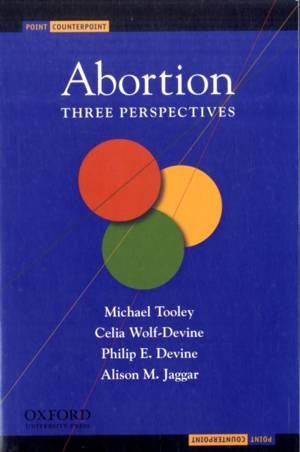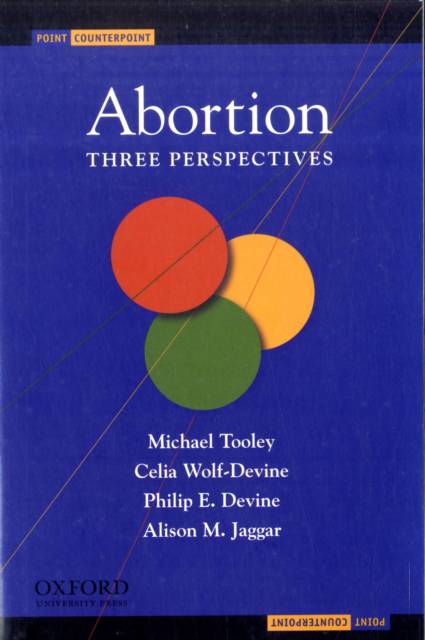
- Afhalen na 1 uur in een winkel met voorraad
- Gratis thuislevering in België vanaf € 30
- Ruim aanbod met 7 miljoen producten
- Afhalen na 1 uur in een winkel met voorraad
- Gratis thuislevering in België vanaf € 30
- Ruim aanbod met 7 miljoen producten
Omschrijving
Moving beyond traditional "liberal versus conservative" arguments for and against abortion, Abortion: Three Perspectives is an up-to-date, accessible, and engaging exploration of this highly contentious issue. Featuring a triangular debate between four prominent moral and political philosophers, it presents three different political perspectives: Michael Tooley argues the "liberal" pro-choice approach; Philip E. Devine and Celia Wolf-Devine argue the "communitarian" pro-life approach; and Alison M. Jaggar argues the "gender justice" approach. However, each of the authors' self-identifications is also challenged by one or more of the other authors, who offer alternative interpretations of liberalism, communitarianism, and feminism, as well as of what it means to be pro-choice and pro-life. All of these viewpoints are controversial, among both philosophers and general readers. Furthermore, because the arguments do not rely on religious authority, they are directed at all readers, regardless of religious affiliation.
Specificaties
Betrokkenen
- Auteur(s):
- Uitgeverij:
Inhoud
- Aantal bladzijden:
- 272
- Taal:
- Engels
- Reeks:
Eigenschappen
- Productcode (EAN):
- 9780195308952
- Verschijningsdatum:
- 13/01/2009
- Uitvoering:
- Paperback
- Formaat:
- Trade paperback (VS)
- Afmetingen:
- 137 mm x 206 mm
- Gewicht:
- 317 g

Alleen bij Standaard Boekhandel
Beoordelingen
We publiceren alleen reviews die voldoen aan de voorwaarden voor reviews. Bekijk onze voorwaarden voor reviews.








